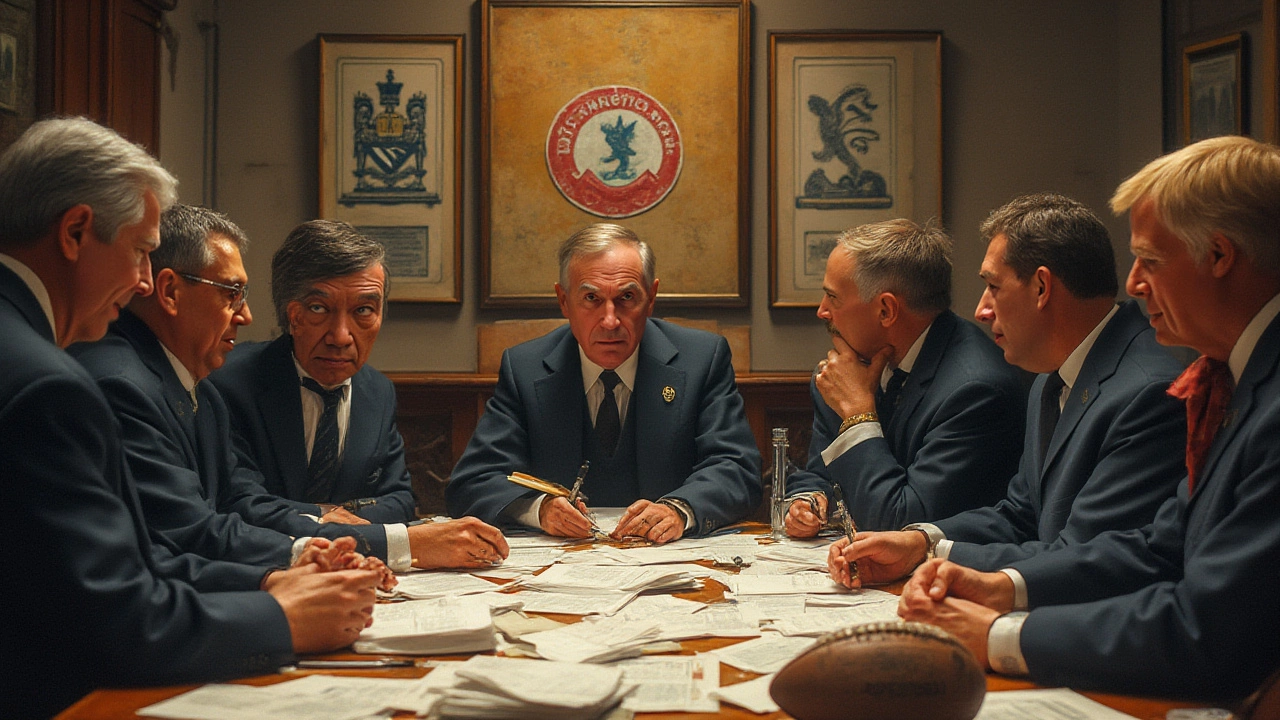Official Football Matches Explained: What Sets Them Apart?

Why does one football game count for record books while others pass without a trace? Every fan has seen heated debates about what actually counts as an "official" football match. The line between an official game and a friendly kick-about can be surprising. Let’s dig into the surprisingly strict—and sometimes quirky—criteria that decide whether a match gets its stamp of approval.
Defining an Official Football Match: The Core Criteria
Not every match where two teams chase a ball across a pitch is "official" in the eyes of football’s worldwide rulers. According to FIFA—the highest authority in football—an official match must meet a checklist that can sound like a referee’s dream, but frustrate the casual fan. For starters, official matches are sanctioned by the governing body responsible for that level: it's FIFA for internationals, regional confederations like UEFA or CONMEBOL, or the national FA for countries. Games played for points in tournaments, qualification groups, domestic leagues, or cups? These are official. Training games, friendlies not recognized by associations, or benefit matches for charity, usually are not—unless they're specially authorized in advance.
One fact most people miss: even between national teams, not every game is official. If countries play outside the official international window, or don’t use the proper referees or regulations, the game gets skipped in FIFA’s records. There are epic stories of teams going all-out to beat their rivals only to find out—sorry, that was “unofficial,” and nobody’s stats go up. FIFA rules state that for international games to be official, teams must use their A sides, the match must be 11v11, and FIFA’s standard Laws of the Game have to be followed. Throw in a local ref or shorten the match length? It no longer makes the cut.
Data from the last decade reveals that nearly 2,200 official international men’s matches take place each year according to FIFA’s calendar. But that’s a tiny fraction compared to the countless local club games, friendlies, or practice fixtures happening worldwide. You might think the rules are overly strict, but they ensure fairness, proper player stats, and—let’s be honest—a much more organized record system.
Official football matches are tied to more than just pride and bragging rights. Only in these fixtures do players earn official caps, goals, and discipline records. Tournaments that determine promotion, relegation, championship medals, or qualification for global events like the World Cup are all made up entirely of official matches. Anything less, and that hat-trick or red card fades into football folklore instead of history books.

Types of Official Matches and What Makes Them Special
When you dig into football, you quickly find more types of official matches than you can shake a yellow card at. The big ones are internationals—basically country vs. country. Here, the stakes get high. All official international matches include World Cup qualifiers, continental championship games (like the UEFA European Championship or Copa América), the World Cup itself, and matches in windows set by FIFA. Did you know there is a strict international match calendar? FIFA sets specific dates when national teams can recall their players, and games outside these dates usually won’t make the official cut. If a club refuses to release a player for a non-official match, there’s no punishment—it matters that much.
Club football is packed with official matches, too: domestic leagues (think England’s Premier League, Spain’s La Liga, or Brazil’s Série A), domestic cup competitions, and continental tournaments (Champions League, Copa Libertadores, and so on) are all official. Reserves, youth teams, and lower divisions also play in leagues and cups that are authorized by their football associations, making most of their competitive matches official. Even women’s leagues, beach soccer, and futsal matches can be official if sanctioned by their appropriate governing body.
The excitement ramps up for "knockout" matches, which carry the danger and drama of elimination—mess up and you’re out. Cup finals, semi-finals, and even third-place playoffs in tournaments are all official by design. Some matches, like the annual Super Cup games, get automatic official status simply because they're run by national or international bodies. But a club’s pre-season tour to the U.S. or Asia? Unless special permission is granted, those games are friendlies no matter the scale of the crowd or the intensity on the field.
Now, here's a quirky one: even testimonial matches to honor legendary players, often full of famous names, are almost never official. It’s always about the competition, structure, timing, and the right paperwork. A club once hosted a "world record attempt" for the longest-ever football game, hoping for official credit—but FIFA said no, since the teams swapped too many players and didn’t follow competition rules.
At the grass-roots level, every new season kicks off with thousands of officially sanctioned youth, amateur, and Sunday league games that count for league tables, promotion, or relegation. These might lack the fireworks of a Cup Final, but without their own configured rules and record-keeping, football’s pyramid would topple.
| Competition Type | Examples | Sanctioning Body | Official? |
|---|---|---|---|
| International Tournament | World Cup, Euros, Copa América | FIFA/UEFA/CONMEBOL | Yes |
| Domestic League | Premier League, Bundesliga | National FA | Yes |
| Authorized Friendly | FIFA international window | FIFA/Confederation | Yes |
| Unauthorised Friendly | Club tours, testimonial | None | No |
| Youth League | U-19 National Championship | National FA | Yes |
| World Record Attempt | Marathon charity match | None | No |

Tricky Cases and Must-Know Facts for the Everyday Fan
Ever thought about who checks if a golden goal or controversial penalty really matters for “official” rankings? Turns out, it’s a small army of record-keepers at FIFA, UEFA, or your local football association. With hundreds of thousands of games played worldwide, they’re obsessed with the fine print: player eligibility, referee credentials, substitution rules, and the actual final whistle all get scrutinized. Sometimes matches stop mid-way (think lightning, pitch invasions, or even a sudden drone on the field)—in these cases, the ref’s match report and the sponsor’s rules determine whether anyone’s stats survive. There’s drama behind the scenes!
Here’s where it gets spicy: some infamous matches in history are technically "non-official." Brazil’s Pelé celebrated scoring his 1,000th goal in a match labeled "friendly" because it didn’t meet the exact requirements—debates raged about whether he “really” hit the mark in official play. Or take a closer look at some early women’s football games: for years, many weren’t deemed “official” by their national FAs, shortchanging players in statistics, recognition, and even pensions.
For the average fan, the label “official” might seem trivial until you start following players’ career stats, or betting on team progress. A sudden switch from official to non-official can instantly mess up records, betting slips, and even fantasy football standings. Even myself—I once placed a friendly wager with Elara on who’d end up with more caps: a Manchester United forward or his City rival. Imagine my surprise discovering two of the City star’s friendlies didn’t count, swinging our bet (and my cash) the other way.
If you’re hunting for tips, watch out for fixture announcements on official FA or FIFA channels, and check whether the match is part of a recognized competition. Want to keep your trivia sharp? Official matches are where bizarre moments become immortal: the fastest World Cup red card, the most own goals in a single tournament, or wild weather delays—all feed into the official annals that shape football’s legacy.
Make note—substitution rules can change what’s official, too. Up to five subs per match became the COVID-era norm, sparking debate among old-school fans, but matches offering unlimited substitutions rarely get accepted for official status. Even things like VAR technology are only used in official matches, so those “what if” debates over replay decisions just don’t apply elsewhere.
Here’s a quick checklist for knowing if a football match is official:
- Organized (and recognized) by a governing body like FIFA, UEFA, CONMEBOL, CAF, AFC, or your national FA.
- Follows the official Laws of the Game (with standard 11-a-side, substitutes per competition rules, standard match duration).
- Played within a structured competition—league, cup, tournament, or qualifying group stage.
- Proper match officials and record-keeping present, with a match report submitted.
- Appears in official schedules or calendars.
That official recognition guarantees players' achievements count, clubs and countries get credit (or blame), and football’s wildest moments are preserved for every quiz, highlight reel, and heated pub debate long into the future.




